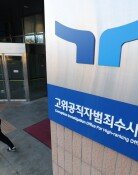No. of Working Senior Citizens Increase
No. of Working Senior Citizens Increase
Posted August. 01, 2010 08:00,
A 62-year-old woman worked for 35 years as a middle school music teacher and retired as a vice principal in 2002. She is now a babysitter for a seven-month-old baby in Seouls western district of Songpa.
The woman works seven hours a day, five days a week, for 900,000 won (760 U.S. dollars). She said she initially shunned at working as a babysitter after spending her career as a teacher.
The situation changed, however, when her husband, who lost his job shortly after the 1997 Asian financial crisis, collapsed due to high blood pressure. She took the job to earn much needed money.
She took her pension in a lump sum of 340 million won (287,000 dollars) in 2002 to pay her husbands medical bills and set up a karaoke bar in Seouls Gangnam district. After a business partner embezzled money, however, she had to close the bar after three years of business.
She tried to get jobs such as part-time worker at a public library and caretaker at a private day-care center, but was rejected because of her age. So she took the babysitter job.
Though her monthly wage of 900,000 won is insufficient to cover her ailing husbands treatment and support their 27-year-old daughter, who is preparing to be an actress after graduating university, she said, Im fortunate since I have a job.
Yoo Ki-yeong, 66, took voluntary retirement due to the 1997 foreign currency crisis after working as a career soldier and in personnel for 30 years. Quitting work in his mid-50s while still economically active, he suffered depression and even took medicine after complaining of severe pain, which he said felt as like he was beaten.
Yoo began looking for work. In June 2006, he finally landed a delivery job in a law firm in Seouls Seocho district after being unemployed for almost 10 years. He earns one million won (844 dollars) a month, and said contentedly, I came to lead an orderly life and grew healthy since I walk most of the time while working.
The number of people aged 60 or over who are still working has grown significantly over the years to reach almost three million. According to government data, the number was 2,972,000, the highest since June 1999 when the government began compiling the statistic.
The elderly have an unemployment rate of 39.1 percent, and two of every five senior citizens are working. This figure is three or four times higher than those of advanced economies, with 10 percent of people above age 65 working on average in member countries of the Organization for Economic Cooperation and Development.
Most of the working elderly in Korea do blue collar jobs such as janitor, taxi driver, delivery man and street sweeper due to lack of preparation for retirement. Given the rise of active aging in advanced economies, however, the number of working senior citizens who are not financially troubled is also rapidly increasing.







